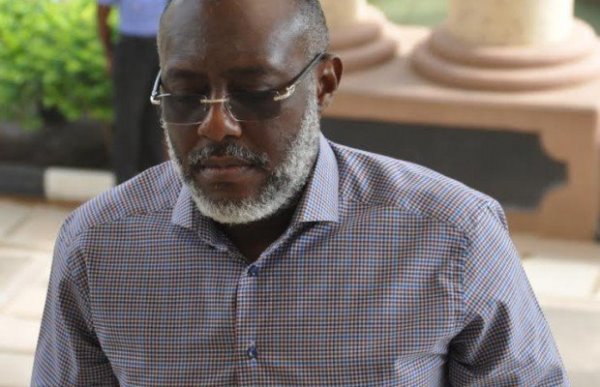By Olalekan Awojodu
Abuja
The Economic and Financial Crimes Commission (EFCC) has urged the Supreme Court to reverse the judgment of the Court of Appeal, Abuja, which voided the conviction and sentencing of the former National Publicity Secretary of the Peoples Democratic Party (PDP), Olisa Metuh and his firm, Destra Investments Ltd.
The pronouncement was made on December 16, 2020.
But in a three separate notices of appeal filed by Sylvanus Tahir, the EFCC lawyer also wants the apex court to void the Appeal Court finding that former National Security Adviser (NSA), Mohammed Dasuki was indicted in the February 25, 2020 judgment by Justice Okon Abang of the Federal High Court, Abuja.
Justice Abang had, in the judgment, convicted Metuh and his firm for money laundering, and he was sentenced to seven years in prison; while on the order of the court also wound up the company.
But Metuh and Destra appealed and the Court of Appeal reversed the judgment on the grounds that the trial judge exhibited bias in his handling of the case and ordered a retrial.
The Court of Appeal, also in a third appeal by Dasuki, marked: CA/A/CR/319C/2020, the appellant upheld the appeal and set aside some aspects of the trial court’s judgment which it said indicted the ex-NSA.
In the two notices of appeal filed against the judgment of the Appeal Court in relation to Metuh and Destra, the EFCC raised 10 grounds of appeal.
The EFCC contended that under the law, the right of appeal in criminal proceedings could only be exercised by a party to the proceedings, either an accused, a convict or the prosecutor.
“The court below lacked the requisite jurisdiction to have entertained the appeal by a non-accused, who was never prosecuted, convicted or sentenced by the trial court,” it added.
The EFCC further faulted the Court of Appeal for considering Dasuki’s lawyer when it had already, in the appeals by Metuh and his firm, nullified the same judgment appealed against by the ex-NSA.
It therefore prayed the Supreme Court to either set aside the Appeal Court’s judgment and restate that of the trial court, or invoke its power under Section 22 of the Supreme Court Act to “do what the Court of Appeal ought to have done in going into the merit of the case as determined by the trial court to decide if the appeal should have been dismissed or not.”
Alternatively, the EFCC wants the Supreme Court to set aside the judgment of the Appeal Court and remit the case back to the court for its President to constitute a fresh panel to hear it on merit.
Dear readers, we really need your support to keep on serving you with authoritative, truthful, and juicy stories everyday. For your support, please reach out to the editor @gavelinternational66@gmail.com

